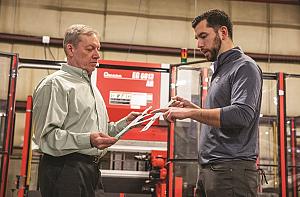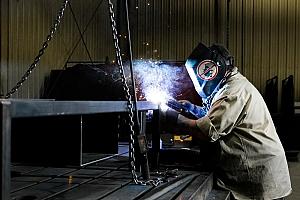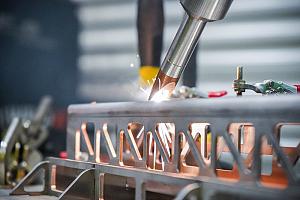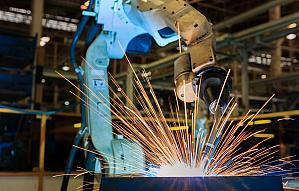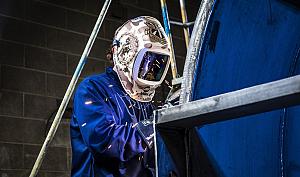- FMA
- The Fabricator
- FABTECH
- Canadian Metalworking
Our Publications
Categories
- Additive Manufacturing
- Aluminum Welding
- Arc Welding
- Assembly and Joining
- Automation and Robotics
- Bending and Forming
- Consumables
- Cutting and Weld Prep
- Electric Vehicles
- En Español
- Finishing
- Hydroforming
- Laser Cutting
- Laser Welding
- Machining
- Manufacturing Software
- Materials Handling
- Metals/Materials
- Oxyfuel Cutting
- Plasma Cutting
- Power Tools
- Punching and Other Holemaking
- Roll Forming
- Safety
- Sawing
- Shearing
- Shop Management
- Testing and Measuring
- Tube and Pipe Fabrication
- Tube and Pipe Production
- Waterjet Cutting
Industry Directory
Webcasts
Podcasts
FAB 40
Advertise
Subscribe
Account Login
Search
Penn State professor receives NSF funding to make 3-D-printed parts more structurally sound
- September 27, 2018
- News Release
- Additive Manufacturing
Saurabh Basu, an assistant professor of industrial and manufacturing engineering at Penn State University, has received more than $260,000 in funding from the National Science Foundation (NSF) to improve the reliability of 3-D-printed parts that are operated under extreme stress.
“Hybrid-Compatible Deformation Processing of Performance Critical Components” is a three-year collaborative research project that focuses on bettering the structural integrity of metal parts made using additive manufacturing (AM) that are used in U.S. aerospace, defense, and energy applications.
“Part of the reason [AM] is challenging is because it’s a slow process, and if you try to speed it up, the physics of the process kind of go out of control. You end up with defects and tiny holes that are ingrained in the part you are making,” said Basu. “This project basically adds a layer of conventional plastic deformation to seal those holes up during the manufacturing process so you don’t have to go back and fix them in postprocessing.
“We have to make sure that we can better trust additive components not to fail before we regularly use them in an application, say, where a real person’s life may be lost if a part doesn’t hold up under stress,” he said. “In many situations the parts just aren’t good to use in our national security efforts because the rate of failure is just too high. We need to fix that.”
- Podcasting
- Podcast:
- The Fabricator Podcast
- Published:
- 05/07/2024
- Running Time:
- 67:38
Patrick Brunken, owner of Addison Machine Engineering, joins The Fabricator Podcast to talk about the tube and pipe...
- Trending Articles
- Industry Events
World-Class Roll Forming Workshop
- June 5 - 6, 2024
- Louisville, KY
Advanced Laser Application Workshop
- June 25 - 27, 2024
- Novi, MI
Precision Press Brake Certificate Course
- July 31 - August 1, 2024
- Elgin,

